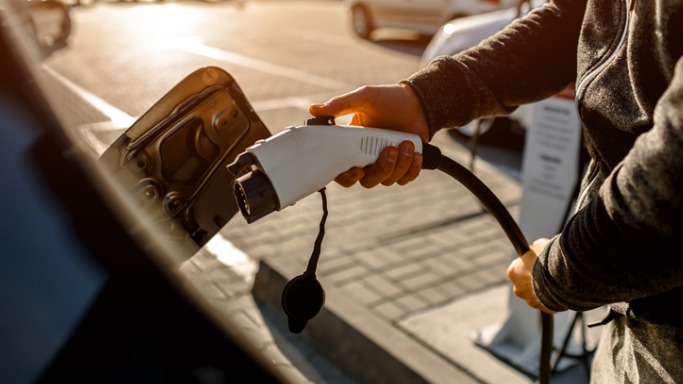In the name of environmental justice, the Biden administration desires to give the federal government an outsized role in the production and sale of electric vehicles (EVs) and battery-powered cars.
The $1.75 trillion spending and tax bill, better known as the Build Back Better Act of 2021, is currently making its way through Congress and contains a provision to bolster the existing EV tax credit from $7,500 to $12,500. The current tax credit is non-refundable. The “Made-in-America” update, if adopted into law, would be refundable as a tax write-off or a cash rebate. It promises to “lower the cost of an electric vehicle that is made in America with American materials and union labor.”
If the beefier EV tax credit sounds too good to be true, it is.
Like the current tax credit, the additional $4,500 is expected to primarily benefit wealthy Americans and corporations — not those in middle- or lower-income brackets — who can already afford the more expensive electric vehicles.
According to the National Bureau of Economic Research, this tax credit essentially is a coupon for high-income earners because they “were more likely to reap the benefits of the tax subsidy but were also more likely to buy EVs in the absence of an incentive, relative to lower-income households.” A 2015 University of California-Berkeley study similarly found 90 percent of subsidy credits were awarded to those in the highest income brackets.
A typical EV or battery-powered car is more expensive to buy and a hassle to deal with compared to cheaper, affordable gas-powered models. How would underserved communities across America benefit from the new tax credits if lower-income households already have a low demand for electric vehicles? Instead, this EV “coupon” will burden taxpayers and is expected to reduce personal household incomes of all Americans by a whopping $95 billion — or $610 per household — between 2020 and 2035.
Moreover, this component to the tax and spend bill stipulates that construction of new EV and battery-powered vehicles will solely benefit auto manufacturers with unionized workers. Talk about picking winners and losers. The provision is so controversial even Democratic West Virginia Sen. Joe Manchin, a critical swing Senate vote and union supporter, criticized the measure as “wrong” and “not American.” Manchin is correct here.
Non-unionized operators slammed the union bonus: “The proposal to provide a $4,500 incentive exclusively for union-built electric vehicles runs counter to the goal of carbon reduction,” Toyota Motor said.
Their statement added, “Let the American consumer choose the best electric vehicle for them without needing to pay an extra $4,500 to buy an electric vehicle not made by Ford, GM, or Chrysler.”
It would give this shrinking sector of the workforce — which currently stands at 10.8% — a monopoly of this emerging market. How? Labor unions behave as cartels by restricting “the number of workers in a company or industry to drive up the remaining workers’ wages.” As union workers rake in higher wages and benefits, the consumer reaps the costs by paying more for these subsidized cars. Moreover, non-unionized outfits like Tesla, Toyota and Honda wouldn’t be able to compete with carmakers like GM, Chrysler and Ford. That is antithetical to our free enterprise system and, ironically, could lead to fewer cars being made here in America.
Furthermore, the government picking winners and losers here won’t lead to increased sales or more affordable cars. The private sector — not the federal government — should be leading the way in producing vehicles, batteries, and charging stations.
The Congressional Research Service determined subsidies “reduce federal revenue but do not increase plug-in EV sales.”
In this case, car manufacturers not benefitting from the tax-and-spend bill will respond to this “government spending shock” by reducing expansion and curbing research and development (R&D) opportunities.
Even with existing available federal tax credits, Americans haven’t warmed up to plug-in vehicles. In fact, overall reception is mixed at best — even with subsidies available for the taking.
In a June 2021 Pew Research Center report, most respondents (51%) oppose phasing out the product of gas-powered cars and trucks. It found only 7 percent of Americans currently own non-gas-powered cars.
The head of the International Energy Agency (IEA) also warned EVs and battery-powered vehicles won’t stop the demand for gas-powered cars. And reluctance by Congressional Democrats and preservationist environmentalists to domestically mine for critically-sourced minerals needed to manufacture cars and charging stations will hamper efforts and make us more dependent on foreign nations with poor environmental and human rights track records for components.
Build Back America better? Far from it.
For non-gas-powered cars to truly take off, the federal government must get out of the way and let the free market innovate. Burdening taxpayers by subsidizing EVs and battery-powered cars for the wealthy will cost the average American while failing to reduce emissions in a meaningful way.

